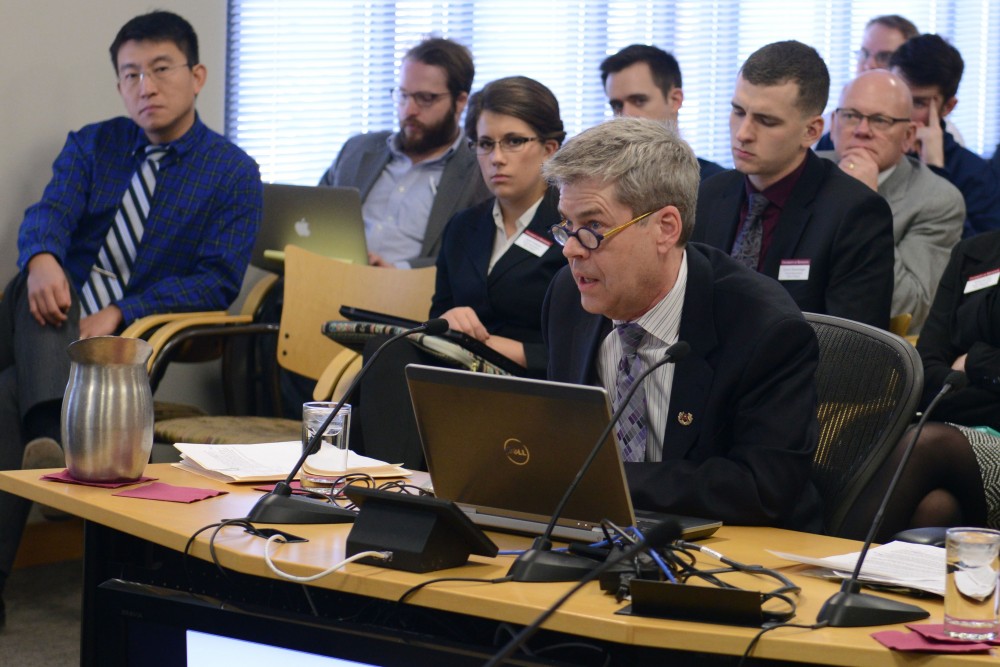The University of Minnesota’s Board of Regents will bolster coordinate campus mental health services after concerns were raised that the Twin Cities campus is allocated a disproportionate amount of funding.
Student representatives to the board said in a presentation Friday that demand for mental health resources has increased system-wide, but the University’s four coordinate campuses have been overlooked while the University has increased funding on the Twin Cities campus,
In its annual report, the student representatives called for an increase in funding for mental health resources for the coordinate campuses.
“There’s an opportunity for tremendous impact with even the most basic investments on the system campuses,” Lauren Mitchell, student representatives to the board chair said Friday.
To address the lack of access, the report called for funding for three to five full-time equivalent counselors across the four coordinate campuses.
Board Chair Dean Johnson recognized the lack of mental health support at the system campuses and said regents would consider the request.
He didn’t commit to specifics but said the board would dedicate additional funding to increase access to mental health concerns at the coordinate campuses.
“We’ll … give it some good, honest thought and discussion,” he said.
The Twin Cities investment alleviated some access problems, according to the report. Access issues at the system campuses, however, are the same or more severe, especially because of a lack of alternative community resources.
After a $200,000 increase in funding on the Twin Cities campus, the ratio of full-time equivalent counselors to students jumped to one to 1,222 and wait times decreased.
But at Crookston, the ratio is one counselor for every 3,568 students and one counselor for every 2,754 students on the Duluth campus — far from the International Association of Counseling Services recommended one for every 1,000 to 1,500 students.
With 3.2 full-time equivalent counselors, Morris has one counselor for every 553 students.
On the Crookston campus — where reports of suicidal ideation have increased threefold — student leaders estimate that one half-time counselor to help deal with a surge in demand for counseling.
Mitchell said a student on the Rochester campus reported feeling bad trying to ask for help from the on-campus mental health counselor who isn’t a licensed counselor, because they knew how understaffed and overwhelmed the counselor was.
Mitchell said she was glad to see the regents pay attention to the topic, though no specific steps have been decided on outside of promising that a portion of the budget will be allocated to coordinate campus mental health.
The board will vote on a finalized budget in June.
“I am troubled by some of the mental health issues and issues that have been brought to us recently,” Regent Michael Hsu said Friday.








